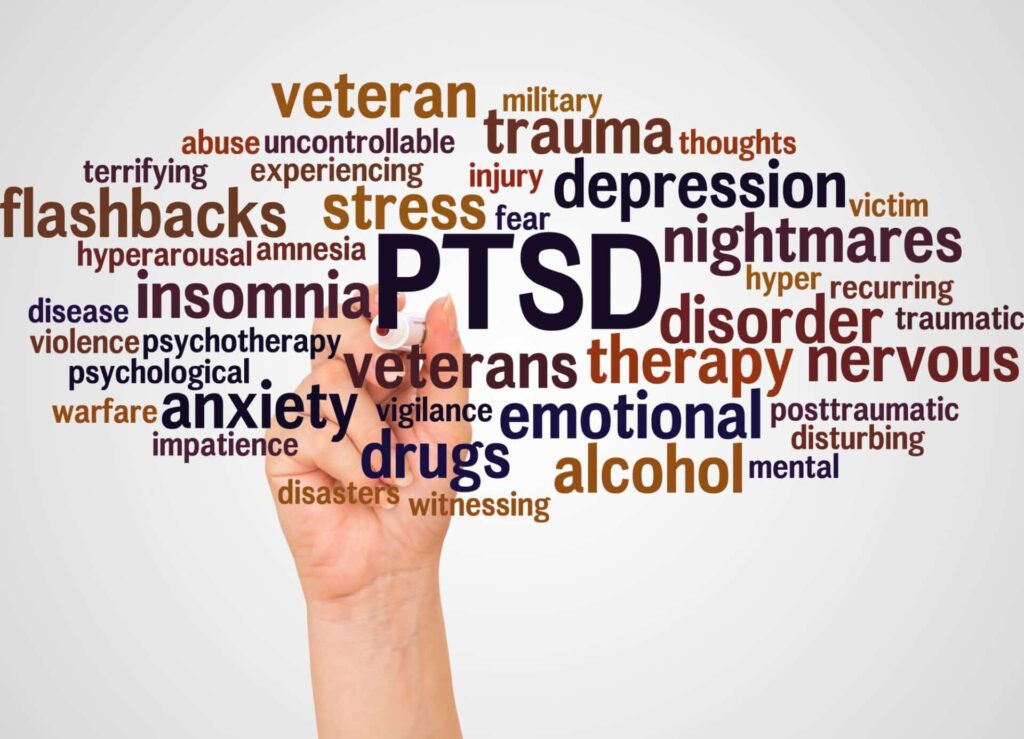In recent studies following patients recovering from acute COVID-19 infections, PTSD rates were 30.2%. While it was a small sample group, PTSD has increased amongst healthcare workers and patients during the pandemic.
What was once known as a mental health condition amongst veterans, no one is immune, and any traumatic event can trigger symptoms. Have you asked, “do I have PTSD?”
Turning to the internet may give you a plethora of surveys and tests to take. Luckily, we have a complete PTSD guide to help you determine if you have common symptoms. Keep reading on until the end and find out about San Diego rehabilitation centers for trauma.
What Is PTSD?
Post-traumatic stress disorder (PTSD) is a mental health condition. It usually develops after someone experiences a traumatic event. Contrary to popular belief, the event doesn’t have to be life-threatening.
Any stressful event could cause PTSD symptoms, such as the death of a loved one. Other experiences that most commonly cause PTSD are:
- Military combat
- Assault
- Abuse
- Natural disasters
- Accidents (e.g., motor vehicle accidents)
- Injuries or life-threatening medical diagnoses
- Terrorism
People who are the most at risk of signs of PTSD include women, other mental health illnesses, and childhood trauma or abuse. One of the unique characteristics of PTSD compared to other mental health illnesses is it can occur at any age, and anyone can be susceptible.
What Are the Signs of PTSD?
There are four recognized PTSD symptom categories: intrusive, avoidant, arousal, and changes in thoughts. It is not uncommon for people to have dual diagnoses, such as depression or a substance use disorder. Intrusive PTSD symptoms include:
- Repeated memories
- Nightmares
- Flashbacks
- Physical reactions
As the name sounds, avoidant symptoms include avoiding any thoughts about the event. It could involve physically staying away from places or people that remind you of the trauma. Increased arousal symptoms encompass signs and symptoms like:
- Startled or fearful
- Irritability
- Difficulty concentrating
- Insomnia
- Recklessness
Lastly, changes in thoughts can range from memory loss to depressive symptoms. People may also feel shame or guilt surrounding the event.
Do I Have PTSD?
Trauma is one of the causes of developing substance use disorders or other addictions. Many times, individuals will self-medicate to numb or manage feelings associated with PTSD.
It is important that when you seek out rehab centers in San Diego, you choose ones specialized in dual-diagnoses or trauma therapy. Mental health professionals can make a PTSD diagnosis and help you on the path to recovery and treatment. However, there are online resources that can give you a good idea if you are dealing with PTSD.
Here are some common criteria that professionals look for when diagnosing PTSD:
- Symptoms last longer than one month
- Minimum of one intrusive symptom
- Minimum of one avoidance symptom
- Minimum of two mood changes symptoms
- Minimum of two arousal symptoms
Lastly, PTSD symptoms must interfere with daily activities like work, relationships, or other obligations. It is still best if you follow up with professionals regarding PTSD since there are more in-depth tests that they may use to assess severity, subtypes, and overall impact.
Substance Use Disorders and PTSD
Alcohol treatment centers in San Diego should also focus on dual diagnoses. PTSD and alcohol abuse are closely intertwined, especially amongst combat veterans. In this population group, nearly 50% to 75% will develop an alcohol use disorder.
This co-occurring disorder can be devasting for individuals and their families, making it essential for San Diego alcohol rehabilitation to focus on both mental health disorders.
Can You Treat PTSD at Home?
After a PTSD diagnosis, you may wonder if there are treatment options you can utilize at home. If there are signs and symptoms of addiction or substance misuse, treatment is best handled in San Diego rehab centers.
It is crucial that you seek treatment if dealing with drug or alcohol abuse. Substance use disorders can cause several physical and mental health effects, making withdrawing on your own dangerous. At Apex Recovery, we help veterans and individuals dealing with PTSD by offering:
- Medication-assisted treatment
- Psychiatric assessment
- Holistic treatment approaches
San Diego rehabilitation offers individual and group therapy focused on addressing underlying causes through techniques like cognitive-behavioral therapy. Holistic treatments can help individuals connect with animals, the outdoors, and other avenues to help in the healing process.
For mild PTSD cases, it is possible to carry out treatment at home and attend support groups or outpatient therapy as needed. In an outpatient center, you can still stay overnight in your house and work full-time. Outpatient therapy might include group therapy, psychotherapy, substance use disorder counseling, and other psychiatric counseling.
How To Find Treatment Centers in San Diego
San Diego PTSD treatment centers should employ qualified and highly experienced professionals. It is also important that treatment facilities provide several different services based on severity and co-occurring disorders, such as:
- Medical detox
- Inpatient rehab
- Partial hospitalization programs
- Outpatient therapy
Fortunately, it is becoming more commonplace that drug, alcohol, and mental health programs are covered by insurance plans. Ensure you ask about insurance coverage and payment options before starting your recovery.
Start Recovering From PTSD
Have you asked, “do I have PTSD?” PTSD is a debilitating mental health condition that affects many veterans and victims of abuse. However, you may have signs of PTSD without even knowing it, especially if you have experienced a traumatic event in the past few months.
After you have reviewed your symptoms, it may be time to reach out to professionals for help. San Diego rehabilitation centers can help you with trauma recovery and other co-occurring disorders.
Seeking help now can help you manage symptoms and live a healthier life. Verify your insurance to get started on your recovery.

